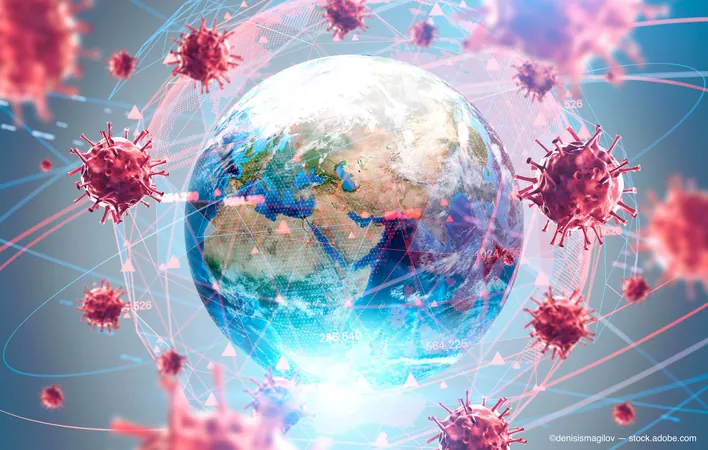
Unlocking the Secrets of the Ocean: How 'Marine Snow' Sustains Marine Life
2025-06-15
Author: Arjun
Ever wonder what truly keeps our oceans thriving? While we often attribute the ocean's vitality to sunlight, waves, and tides, a new study reveals a hidden hero: marine snow.
Marine snow, composed of tiny bits of drifting debris in the ocean, serves as a sanctuary for bacteria that are essential for maintaining critical processes in our waters. These microscopic allies convert inert nitrogen gas into a usable form, a vital process known as nitrogen fixation.
The Discovery Behind Marine Snow
Conducted by Subhendu Chakraborty at the Leibniz Centre for Tropical Marine Research in Germany, this groundbreaking study highlights how marine snow creates unique zones in the ocean. Contrary to the apparent uniformity of ocean waters, floating particles attract vibrant microbial communities.
These bacterial hotspots flourish in low-oxygen regions with ample organic matter, providing the perfect conditions for nitrogen fixation. Using sophisticated mathematical models, researchers explored how these bacteria adapt to fix nitrogen across varying latitudes—surprising even in colder, less hospitable waters.
Understanding the Nitrogen Connection
Nitrogen is essential for all life; it plays a critical role in forming proteins and other vital molecules. Despite being abundant in the form of dissolved nitrogen gas, most marine organisms can't utilize it directly. Some ocean cyanobacteria can convert this gas in sunlit areas, but heterotrophic bacteria embedded in marine snow go one step further: they perform nitrogen fixation in deeper, darker waters.
The study estimates that these bacteria contribute around 10% of nitrogen fixation in the seas, a significant revelation about their role.
A Temperature Tango
Chakraborty reflects on the journey, stating, "It has been almost five years since we started this work... and the results are quite a breakthrough." As they examined how temperature affects nitrogen fixation, the researchers found that optimal rates occur around 63°F (17°C). At extremes, whether too cold or hot, bacterial respiration falters, hindering their ability to fix nitrogen.
Navigating Global Change
With climate change reshaping ocean chemistry, warmer surface waters could impact nutrient distribution, diminishing organic matter in deep ocean zones. Yet researchers are hopeful: bacterial communities may adapt well to shifting conditions, particularly in anoxic areas of large particles.
Connecting Marine Ecosystems
This study underscores the delicate balance of marine biology. Phytoplankton depend on fixed nitrogen, and the growth benefits all marine life, including fish. By bolstering nitrogen supplies from deeper waters, these bacteria serve as vital connectors in the marine food web.
Emerging Research Frontiers
The dynamism of ocean systems is constantly evolving. This new focus on deeper-dwelling bacteria opens exciting opportunities for further research into carbon sequestration and the relationships between known nitrogen fixers like cyanobacteria and these newly highlighted microbial partners.
The revelations from this study, published in Science Advances, encourage a reevaluation of how we perceive ocean productivity and the intricate, interdependent networks that sustain marine ecosystems.




 Brasil (PT)
Brasil (PT)
 Canada (EN)
Canada (EN)
 Chile (ES)
Chile (ES)
 Česko (CS)
Česko (CS)
 대한민국 (KO)
대한민국 (KO)
 España (ES)
España (ES)
 France (FR)
France (FR)
 Hong Kong (EN)
Hong Kong (EN)
 Italia (IT)
Italia (IT)
 日本 (JA)
日本 (JA)
 Magyarország (HU)
Magyarország (HU)
 Norge (NO)
Norge (NO)
 Polska (PL)
Polska (PL)
 Schweiz (DE)
Schweiz (DE)
 Singapore (EN)
Singapore (EN)
 Sverige (SV)
Sverige (SV)
 Suomi (FI)
Suomi (FI)
 Türkiye (TR)
Türkiye (TR)
 الإمارات العربية المتحدة (AR)
الإمارات العربية المتحدة (AR)